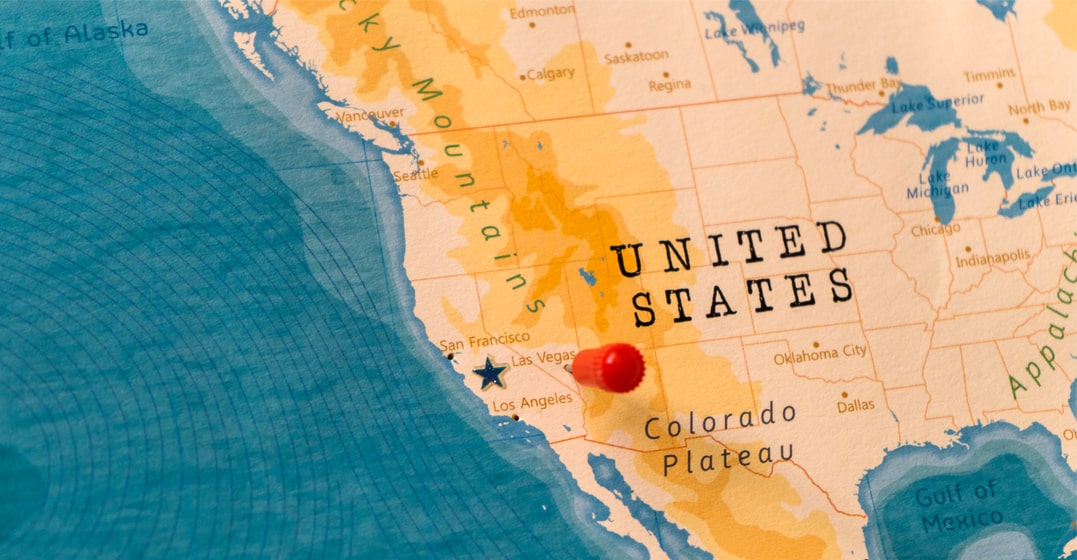Updated on October 15, 2024

American accents map: A tour of different accents across the US

Not all Americans sound the same. You’ll hear very different American accents in the east, south, central and western United States.
Some accents are subtle. Sometimes they can be hard to understand.
We’ll break down the distinct pronunciation and vocabulary of different American accents. And hey! Maybe you’ll be able to do a New York or southern American accent after reading this article.



You’ve probably heard a lot of different American accents. Maybe you’ve been to the US, live there or have watched American TV and movies.
From Maine to Hawaii, American accents can vary a lot. Most Americans can understand all the different accents.
American accents signal where in the country a person is from. Our list doesn’t include every single accent in the US, much less the English-speaking ones. Also, not everyone from the same place sounds the same. Different accents are found across cultural communities, generations and socioeconomic backgrounds. Everybody has a unique way of speaking and the degree to which they take on the local accent varies by individual.
The US is a big country. To keep it all straight, we put together an American accent map to help visualize where you might hear them.
We’ll start with the American accents from the eastern part of the United States.
The New England or Boston accent can be heard in movies like Good Will Hunting and a few film classics. It’s famous for its less round, more nasal pronunciation of words like park /pak/, car /ka/ and yard /yad/.
A sentence like “Park the car in Harvard yard.” would sound like: /pak tha ka in Havad yad/
People in this region like to say “wicked” to mean awesome or to give emphasis.
The Maine accent is very unique and not easily replicated. It flattens out some vowels. The vowels in “year” or “hard” will be pronounced more like the vowel in “air” /εr/: /yεr/ and /hεrd/.
You might also hear the “s” and “z” consonants change to a “sh” sound. Instead of “I spent my days” it might sound like /I shpent muh daysh/.
The New York accent has very rounded “a” and “o” vowels.
So words like father, daughter and coffee, are pronounced very distinctly. New Yorkers pronounce the vowel in “father” and “hot” the same, but these vowels sound more like the /ͻr/ sound in “oar” and “court.”
New Yorkers say “fuhgeddaboudit” (forget about it) as one single word.
The Philadelphia or “Philly” accent also has distinct vowel pronunciation. The “a” vowel in words like “water” will sound a bit more like a schwa sound.
The schwa /Ə/ sound is found in words like “support” /sƏ port/and “banana” /bƏ na nƏ/. Philadelphians will say “water” /wƏ der/.
They’ll also shorten words and phrases.



The American accents of the southern United States can vary a lot. From Texas to Georgia and up to the Carolinas, southern accents range from nasal to smooth. Here are some common things you’ll hear.
The southern accent is slower. They will prolong vowel sounds of words and often turn monophthongs into diphthongs. In these examples, the southern accent ads the schwa /Ə/ sound in “support” to make a diphthong:
Southerners like to say things like “y’all” and “howdy.” (Howdy! Do y’all have a pet?)
The midwestern accent is heard in movies like Fargo. This accent will change a number of short vowels.
“I bought a bat” sounds like /I baht a bee at/.
Midwesterns like to say “you betcha” and “doncha know?”
The California accent It’s not the stereotypical “valley girl” accent that is often joked about.
In California, they have both the cot-caught merger and the Mary-merry-marry merger. They make no distinction in the pronunciation of these words.
Californians also like to say “dude” and in the Bay Area “hella” to mean a lot. Hella cool, dude.
Hawaii has Hawaiian pidgin. It is a type of creole that developed from native Hawaiian language and English.
Sentences may be shorter and words may be omitted. The “th” sound will often be pronounced “d” or “t’.
“You go on this side on three” sounds like “Go dis side on t’ree.”
In Hawaii, they like to say “shaka”, which means cool or great.
The Pacific Northwest stretches along the Northwestern coastline of Oregon and people say there’s no specific accent. But that’s not true, the accent is similar to the Canadian and Californian way of speaking.
Apart from that, there are many indigenous cultures. 49 tribes speak the Chinook Jargon.
So what’s the Pacific Northwest accent like? For example, speakers pronounce the vowels in “cot” and “caught” exactly the same. The most famous speaker is probably Bill Gates. Have a listen:
The High Tider accent is only spoken on the Outer Banks of North Carolina in the US. It is a mix of English, Scottish and Irish dialects and is only spoken by approximately 950 people in total. Most of the people live on an island called Ocracoke, that’s why this dialect is also called Ocracoke Bogue.
Cajun English is mostly spoken in southern Louisiana, in the area of Acadiana. Cajuns are descendants of French settlers who moved to Acadia which is a Canadian area. Many of those people left to move to Louisiana and took their accent with them.
What is special about this accent is its similarity to French syntax and some French vocabulary that’s used in everyday speech. For example, a Cajun speaker would say:
She’s really fâché right now. (She’s really angry right now).
We’re now venturing to Florida to immerse ourselves in the speech and slang of the Sunshine State. However, it’s important to note that there isn’t one definitive Florida accent. The state can be roughly divided into northern and southern regions, each with its unique accent. Moreover, Miami boasts its own distinct accent and slang due to its sizable Latino community. You’ll have the chance to pick up some Florida-specific lingo during your visit, like “jit” and “bih.” And if you happen to take a dip in a pool for a “Florida bath,” you’re bound to end up complaining about “no-see-ums.”
American accents are all about where you are from. A great way to start a conversation and make new friends is by asking, “Where is your accent from?”
People are proud of their accent and their roots. Knowing different American accents will help you fit right into American culture.


